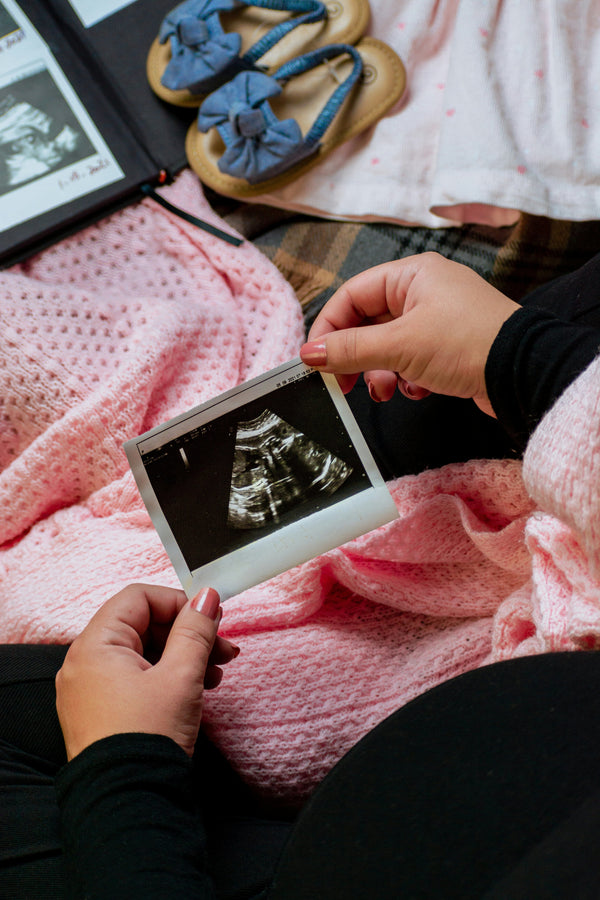Article
15 interesting facts about pregnancy you probably didn't know
Posted on
Pregnancy is a remarkable journey filled with wonder and amazement. Along with the joy and anticipation, there are numerous fascinating aspects to discover. Here are 15 interesting facts about pregnancy that you probably didn't know:
1. Baby's Taste Buds Develop in the Womb
By the end of the first trimester, a baby's taste buds have already formed, and they can taste the amniotic fluid.
2. Babies Can Cry in the Womb
Ultrasounds have shown that babies can cry silently in the womb as early as the second trimester.
3. Baby's Hair Colour Can Change
The hair colour of a baby at birth may not be permanent. It can change in the weeks or months following delivery.
4. Hiccups Are Common for Babies in the Womb
Babies often experience hiccups in the womb. You may feel rhythmic movements as your baby hiccups.
5. Baby Can Recognise Your Voice
By the third trimester, a baby can recognise and respond to their mother's voice, finding it calming and familiar.
6. Babies Have a Sense of Smell
Babies can detect various smells in the womb, including the scents of the foods their mother eats.
7. A Baby's Heartbeat Is Faster Than an Adult's
A baby's heart beats much faster than an adult's, with an average foetal heart rate of around 120-160 beats per minute.
8. Babies Develop Unique Fingerprints
By the end of the first trimester, a baby's fingerprints have fully formed and are unique to them.
9. Pregnancy Can Change Your Shoe Size
Hormonal changes and increased fluid retention during pregnancy can cause your feet to expand, resulting in a change in shoe size.
10. Baby's Movements Reflect Their Sleep-Wake Cycle
Babies have distinct sleep-wake cycles in the womb. Active movements usually indicate that the baby is awake.
11. Baby's Nails Start Growing in the Womb
A baby's nails begin to grow in the womb.
12. Baby Can Sense Light and Darkness
Babies can perceive light and darkness in the womb. They may respond to changes in light by moving or becoming more active.
13. The Placenta Is an Organ Unique to Pregnancy
The placenta is a temporary organ that develops during pregnancy to provide oxygen, nutrients, and waste removal for the growing baby.
14. Pregnancy Can Affect Memory and Brain Function
Pregnancy hormones can impact memory and cognitive function, leading to occasional forgetfulness or "pregnancy brain."
15. Babies Can Recognise Music
Studies suggest that babies can recognise and remember melodies played or sung to them during pregnancy.
These fascinating facts offer a glimpse into the incredible journey of pregnancy. Embrace the wonder and joy as you embark on this incredible chapter of life.
Supporting Your Pregnancy Journey with Vital Vitamins and Minerals
One of the best ways to support your pregnancy journey is by ensuring you are taking in all the vital vitamins and minerals for both you and your developing baby. A balanced and nutritious diet plays a crucial role in providing the necessary nutrients during pregnancy.
Prenatal supplements are often recommended to supplement your diet and ensure adequate intake of essential nutrients such as folic acid, iron, calcium, vitamin D, and omega-3 fatty acids.
We recommend our Vital Essence range, which contains all of the vitamins and minerals recommended specific to each trimester, as well as folate, the active form of folic acid. We also recommend Vital DHA, which contains Omega 3 essential fatty acids (EFAs), plus a small amount of Zinc. It plays a critical role in the development of a baby’s brain during pregnancy and early infancy, so is recommended to take during pregnancy and breastfeeding.
Vitamin D is also recommended for those who are pregnant, especially in the winter months. Our vitamin D spray contains vitamin D3, the superior form of vitamin D.
Remember, a healthy and well-nourished body is better equipped to handle the demands of pregnancy and support optimal foetal development. Prioritise your nutrition and make informed choices to promote a healthy pregnancy for you and your baby.
Further reading
-

Is this normal in trimester 2?
Pregnancy can feel like a constant swirl of questions and new experiences. The second trimester is often called the “honeymoon... -

Myths About Early Pregnancy Safety
Trigger Warning: This post discusses early pregnancy, including topics such as miscarriage and common symptoms. The first twelve weeks of...


